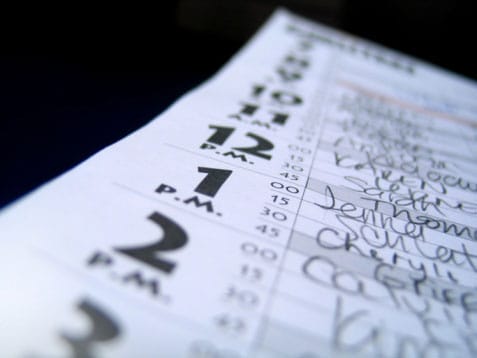A crucial success factor for business leaders is getting the right things done. Visionary leadership, brilliant strategy formation and outstanding one-on-one management are all for nothing if you cannot execute what you need to get done on a daily basis.
Below, I offer some thoughts and suggestions on leadership prioritization and efficiency:
Focus on the Important
• Do the important first. Begin your day (before looking at emails or responding to phone calls) doing 30 minutes of the most important task that needs to get done that day.
• Schedule your priorities. For the upcoming week, first schedule the most important tasks and then use these as tent poles around which to plan all of your other visits, meetings or tasks.
• Realize and accept that a focus on the important means that some items will not be done as well as they should. It is OK to do “B” work on the unimportant in order to do “A” work on the important.
Keep Things Short and Simple
• Keep emails short. Write emails with bullet points when possible and be clear on the response you expect from your audience.
• Use the “power of three” and summarize or explain an issue with three bullet points.
• Wherever possible, keep all reports, summaries and position papers to one page.
Focus on the Critical Path
• Get tasks that are on the critical path started immediately.
• As managers, we cannot be the roadblock on the critical path. Make decisions as quickly as possible.
Decisiveness
• According to the authors of “Skills for Success: The Experts Show the Way”, leaders ought to follow this decision-making formula: make 80 percent of your decisions on the spot, allow 15 percent “to mature,” and do not make 5 percent at all.”
• The phone is still more effective in clear and rapid communication than email; use it more often.
• Whenever an email is going to be long and complex, pick up the phone and talk to the person. Whenever you have something critical to say, pick up the phone or meet in person.
• Respond to all phone calls as quickly as possible, but definitely within 24 hours.
• If you leave a voice message, leave it with a detailed explanation so that the person can think about the item to discuss before calling back.
Avoid Interruptions, Distractions and Time Wasters
• Work without interruption. Turn off any pings or visual warnings about emails, texts, etc. coming in on your computer and your phone.
• When calling or meeting informally in the office, you cannot go five times—each time for one item. Go one time for all five items.
• Avoid meetings and conference calls, especially internal meetings, as much as possible. Send an email or talk directly to each of the key parties involved.
• If you have to have a meeting, have a fixed agenda and pass out any documents beforehand so that everyone can be up to speed without wasting time presenting. This shortens and focuses the meeting.


























